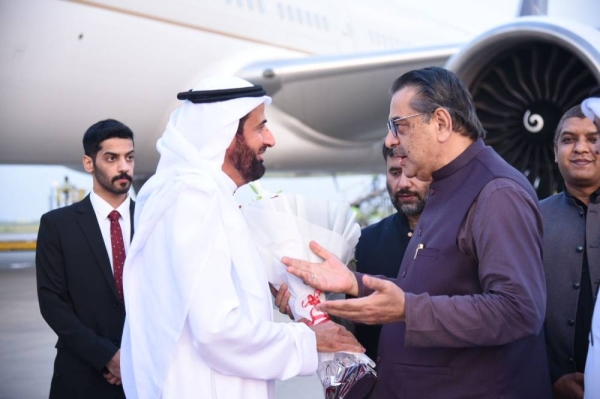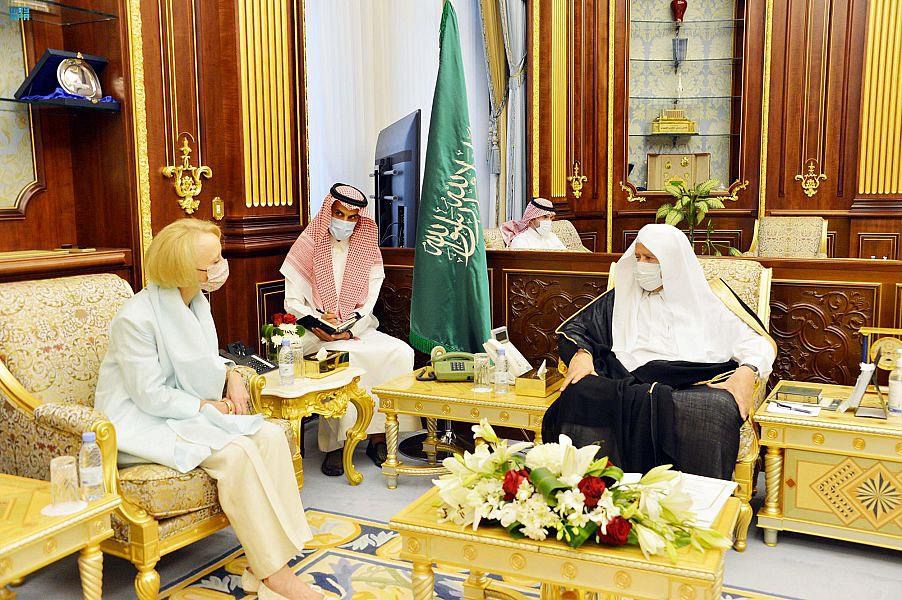
Energy prices set by oil refining, geo-political factors, say experts
US leader has to refocus on key trade and security pacts with the Kingdom
CHICAGO: President Joe Biden’s expectation to reduce US gasoline prices with his impending trip to Saudi Arabia are unrealistic because energy costs are driven by global market and political variables, say experts.
Gas prices at the pump have doubled over the past four months and weakened the American economy, and that is hurting Biden who faces losing control of both the US House and Senate in the Nov. 8 midterm elections.
Former Assistant Secretary of State for Near East Affairs David Schenker and Saudi analyst and researcher Salman Al-Ansari both said that simply increasing the production of oil as many hope will happen, will not reduce costs because of industry limitations on refining capacity and European geo-political factors.
“When President Biden came to office, gas was $2 a gallon. It is now $5 a gallon on the East coast. He really wants Saudi Arabia and the other Gulf partners, the UAE, Kuwait and others, (including) Qatar to increase production to lower the price of oil. There are limitations in terms of capacity, surge and production. But also really some problems with our refining capacity. That is top on his agenda,” Schenker said.
“I think you get a couple hundred thousand barrels more, maybe 150. But even if you got a million barrels or 2 million barrels on the market, I think it is important for American consumers to know, it may not make a great deal of a difference to us because that oil isn’t coming to us. It is going to the global market. What’s more if you listen to the Saudis, and what I heard when I was in Riyadh and Dhahran, I went to Aramco my last trip, a month and a half ago to Saudi, they tell you … we can do a little bit more but production isn’t the problem. The problem is refining capacity.”
Al-Ansari agreed, saying: “Some people think of Saudi producing more oil, etcetera, but I don’t think that will happen in a dramatic kind of manner because Saudi Arabia is committed to OPEC+ agreements.”
“And let’s not forget the issues of high energy prices are not related to the lack of supply of oil but rather the effect of geo-political tensions in Europe and the fact that Russia supplies 30 percent of Europe’s oil and 40 percent of gas demand.”
Schenker said that Biden is hoping to “reset” the relationship with Saudi Arabia which he harshly criticized during his campaign and through the first 18 months of his presidency.
“Biden is also trying to reset the relationship with Saudi Arabia. (There) was basically a deliberate scuttling of the relationship with Saudi Arabia,” Schenker said.
Al-Ansari explained that the Saudi-US relationship has been productive for both countries since it began 76 years ago during a meeting between President Franklin Delano Roosevelt and King Abdul Aziz ibn Saud.
“The relationship has been there for more than 76 years or almost eight decades. I would quote the State Department Secretary Mr. Blinken and he said the US-Saudi Arabian relationship is important and bigger than any individual. I think both parties understand the importance of this mutual and beneficial relationship. Saudi Arabia is considered the biggest trading partner for the United States in the Middle East,” Al-Ansari said.
“When it comes to Saudi Arabia, the United States is considered the second (biggest trading partner). And also for the United States globally, Saudi Arabia is considered to be (its) number 12 biggest trading partner ... So, we are speaking about a very important relationship. Let’s not forget the fact that Saudi Arabia is the center and heart of the Arab and Muslim world. You cannot basically solve any issue in the Arab or Muslim world without getting Saudi Arabia involved, and Saudi Arabia has been involved heavily since the beginning of the relationship.”
Al-Ansari added that Saudi Arabia has been a dependable partner for the US and the West not only in tempering dramatic swings in oil costs but also confronting rising extremism.
“There are actually three pillars of the Saudi-US initiative and Saudi-US partnership that happened throughout history. The first was selling oil (at) cheap prices to the United States and that is very essential and important for the US to become what it became,” Al-Ansari said.
“And the second was (to) foil the Marxist, socialist, communist doctrine in the Middle East and globally. And Saudi Arabia worked with the United States to combat communism. And the third pillar was to counter terrorism. And let’s not forget the fact that Saudi Arabia has been the biggest victim and it was on the receiving end of most of the Al-Qaeda and ISIS terrorist attacks. Saudi Arabia received more than 60 terrorist attacks from Al-Qaeda and more than 35 terrorist attacks from Daesh, ISIS; and Saudi Arabia worked with the United States to obliterate ISIS and Al-Qaeda, also in Yemen and from so many different places like Iraq and Syria.”
During the radio interview, both Schenker and Al-Ansari said that confronting Iran is a key issue that Biden will have to address. They also said they do not expect any major breakthroughs on the Palestine-Israel stalemate.
The Ray Hanania Show is broadcast live every Wednesday at 5 p.m. Eastern EST on WNZK AM 690 radio in Greater Detroit including parts of Ohio, and WDMV AM 700 radio in Washington D.C. including parts of Virginia and Maryland. The show is rebroadcast on Thursdays at 7 a.m. in Detroit on WNZK AM 690 and in Chicago at 12 noon on WNWI AM 1080.
You can listen to the radio show’s podcast by visiting ArabNews.com/rayradioshow.











